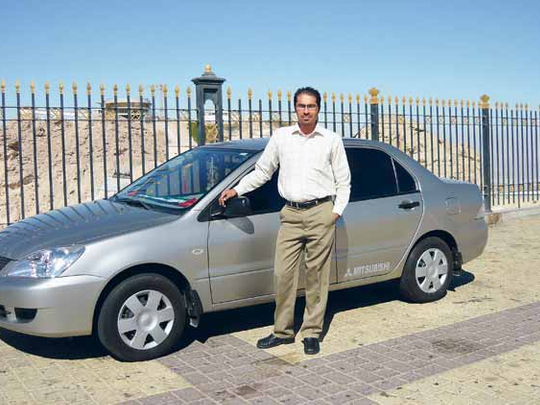
In his first few years in the UAE, when he was still young, Nadeem Ahmad Haji, 38, was not mindful of his spending. The expatriate from Pakistan had a somewhat lavish and carefree life.
Of course, the cost of living in the UAE was still low then, so he could easily afford to go clubbing every week, update his wardrobe every 15 days, change into a new pair of shoes every month and grab new gadgets on a whim. His place was also a stone's throw from the supermarket, so it was impossible not to buy something on impulse every day. That was between 1995 and 1998.
Fast forward to the present and Haji is a completely different man. Now married, he has not seen the lights of a bar for six years. The last time he set foot in a club was around 2004 when some friends from the UK insisted that he should go along. His most recent purchase consisted of three T-shirts, which he bought for Dh100 during a promotion two months ago.
The shoe fetish in him has somehow vanished. He's been wearing the same pair of shoes, which was a gift from a friend two and a half years ago. The last film he watched on the big screen was two years back. And he only went to see it because he got a complimentary ticket.
"I'm a grown up person now. The days when I used to spend a lot are over. I lost all of my three years' money and I was left with nothing. Since 1998, I started saving. I was saying, I'm losing all of [the money I earn]. What's the use of staying here? So, I stopped a lot of activities," Haji tells Gulf News in an interview.
Personal loan
Haji's efforts paid off later. Using a huge part of his savings and an Dh85,000 personal loan he took out a few years ago, Haji managed to build his dream house — a five-bedroom hall with a spacious lounge — in Pakistan for Dh210,000. By 2006, the house was rented out.
"That was difficult, but somehow I managed. I've learned that saving simply means killing your desire for material things. It means a lot of sacrifice and self-discipline because the devil inside you would always tempt and tell you to go spend your money," he adds.
Now, Haji is debt-free. He paid off all his dues, including the personal loan he took to complete his house back home. He's faced with a new challenge, though. He was recently fired from a major developer in Dubai during the height of the recession. He was one of the 300 employees who were declared redundant. Consequently, his income nosedived and he is forced to scrimp more.
"It took me a while to find another job as an AutoCAD draftsman based in Al Ain. Although it's outside Dubai, I took it. I don't have much choice. Before I got terminated, I was earning Dh15,000 a month. Now, my salary is around Dh7,500. Since I have a wife to support, though we have no kids, I'm much more conscious about how I spend my money," he says. Plucking himself out of Dubai, making himself isolated from all the happenings of the city, was indeed a big move for someone who once used to party in the metropolis.
But it's not the end of the world for Haji. What comes as a saving grace is that the cost of living in Al Ain is much cheaper, so even though he's now miles away from the city and earning half of his previous income, he and his wife still manage to get by. Before he left Dubai, Haji was renting a studio apartment near Burj Al Arab for Dh5,500.
He's now living in a spacious one-bedroom house in Al Ain which he rents for Dh2,500. That leaves him about Dh5,000 to spend on other basic essentials. His next and last biggest expense, food and other grocery items, cost around Dh2,000 a month.
Eye for basics
There's nothing else to spend money on regularly. He gets a fuel allowance from his company and is avoiding places that tempt him to overspend. In a month, Haji still feels happy to save Dh2,000 to Dh2,500.
The trick is to keep an eye on the basics and avoid unnecessary purchases. "In this era when we are facing financial problems and no job security, we have to be cleverer to stay on the screen instead of being a part of history," he says.
He doesn't feel deprived even if he leads a simple life. Whereas the night-clubs were a big part of his life before, Haji now enjoys domestic bliss. "Friends would sometimes ask, what happened to you man, have you grown old? You don't go out anymore."
His life is not confined within the four walls of his house or office, though. "My wife and I still go to the malls to do our weekly shopping. But it's purely for essential items. My wife usually prepares a shopping list and we stick to it. We don't buy useless things," he adds.
Sometimes, he rewards himself with a trip to the outdoors. Having a barbecue outside doesn't cost that much. He can still afford to go on occasional jaunts out of the country. Last September, he went to Bahrain and spent only Dh600 on airfare.
- Haji manages to save monthly on his new job: Dh2,000
- Monthly rent he pays for a house in Al Ain: Dh2,500
- His salary in the new company he joined: Dh7,500
Have your say
In circumstances where your partner lost a job, how hard was it to save money? Does a lower salary automatically encourage one to curb spending habits? Tell us.








